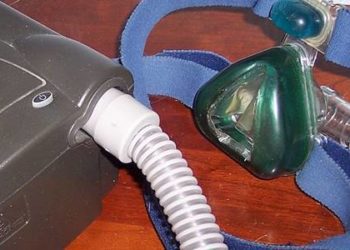Lack of online benefit reloading decreased participation in women, infants, and children nutritional support program during COVID-19 pandemic
1. States requiring women, infants, and children program beneficiaries to either mail or present proof of beneficiary status to reload their benefits had decreased program participation during the COVID-19 pandemic.
2. Offering online benefit reloading may reduce barriers in assessing nutritional support program.
Evidence Rating Level: 2 (Good)
The Special Supplemental Nutrition Program for Women, Infants, and Children (WIC) provides nutritional support for women and children in poverty through either paper vouchers or electronic benefit transfer (EBT) debit cards that can be used to purchase WIC-approved groceries. Despite a Congressional mandate of full transfer to EBT by 2020, several states had not transitioned to EBT cards (“offline states”) by the advent of the COVID-19 pandemic. During the pandemic, accessing benefits reloading in person may have been additionally difficult, resulting in decreased utilization of the program and worsening of childhood food insecurity. However, whether participation and utilization of the WIC program is affected based on the mode of benefit reloading has not been systematically studied.
In this retrospective cohort study, 40 states (7 “offline states” and 33 “online states”) were included. States which transitioned form of benefit during the pandemic were excluded from analysis. The primary outcome was number of WIC beneficiaries per month from January 2019 to January 2021. As a control for general changes in service utilization, participation in SNAP (Supplemental Nutritional Assistance Program), a nutritional support program that is fully online in all states, was examined in parallel.
This study found that states with offline benefits had a decrease in participation (-4.3%) while states with online benefits had increased participation (3.49%). Furthermore, no significant changes in SNAP participation were found between offline and online states. However, this study was limited by its aggregate design and could not account for changes in WIC eligibility, poverty status, or other confounding factors that could have impacted participation in the WIC program. Nonetheless, this study highlighted the large impact a policy could have and encourages further study on improving barriers in accessing public programs.
Click to read the study in JAMA
Image: PD
©2021 2 Minute Medicine, Inc. All rights reserved. No works may be reproduced without expressed written consent from 2 Minute Medicine, Inc. Inquire about licensing here. No article should be construed as medical advice and is not intended as such by the authors or by 2 Minute Medicine, Inc.









